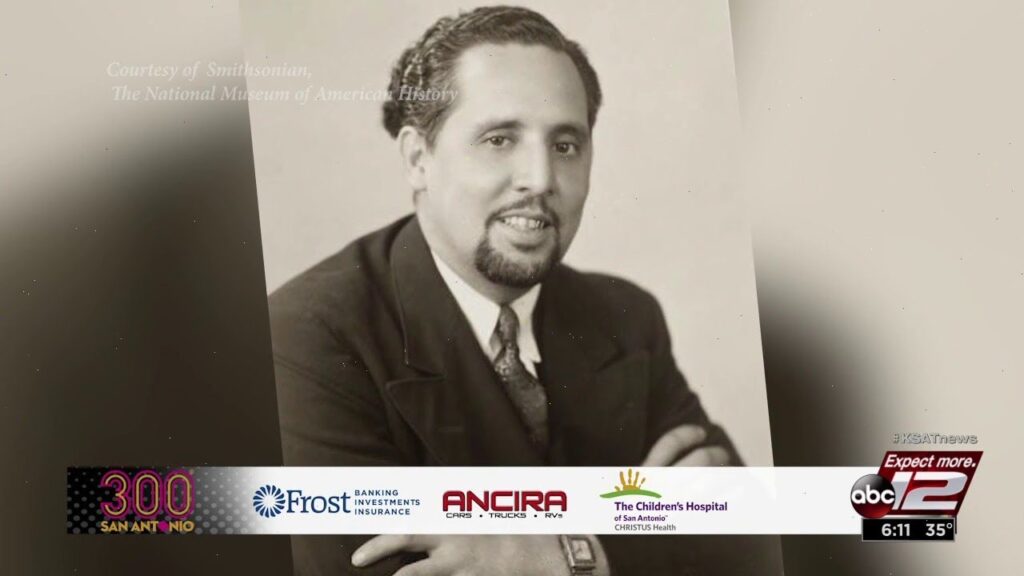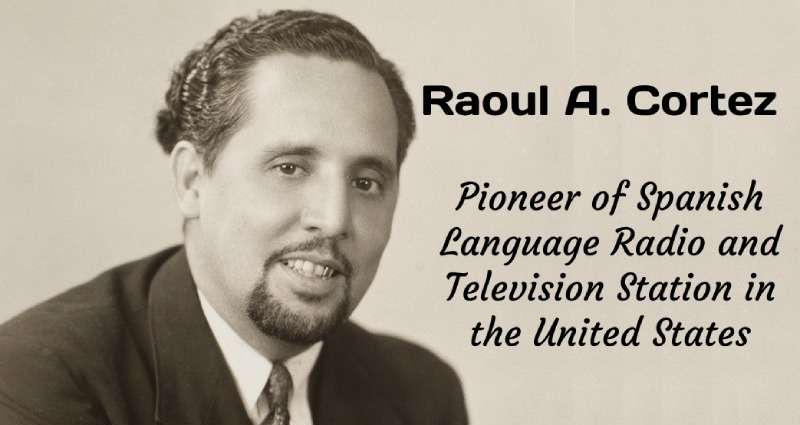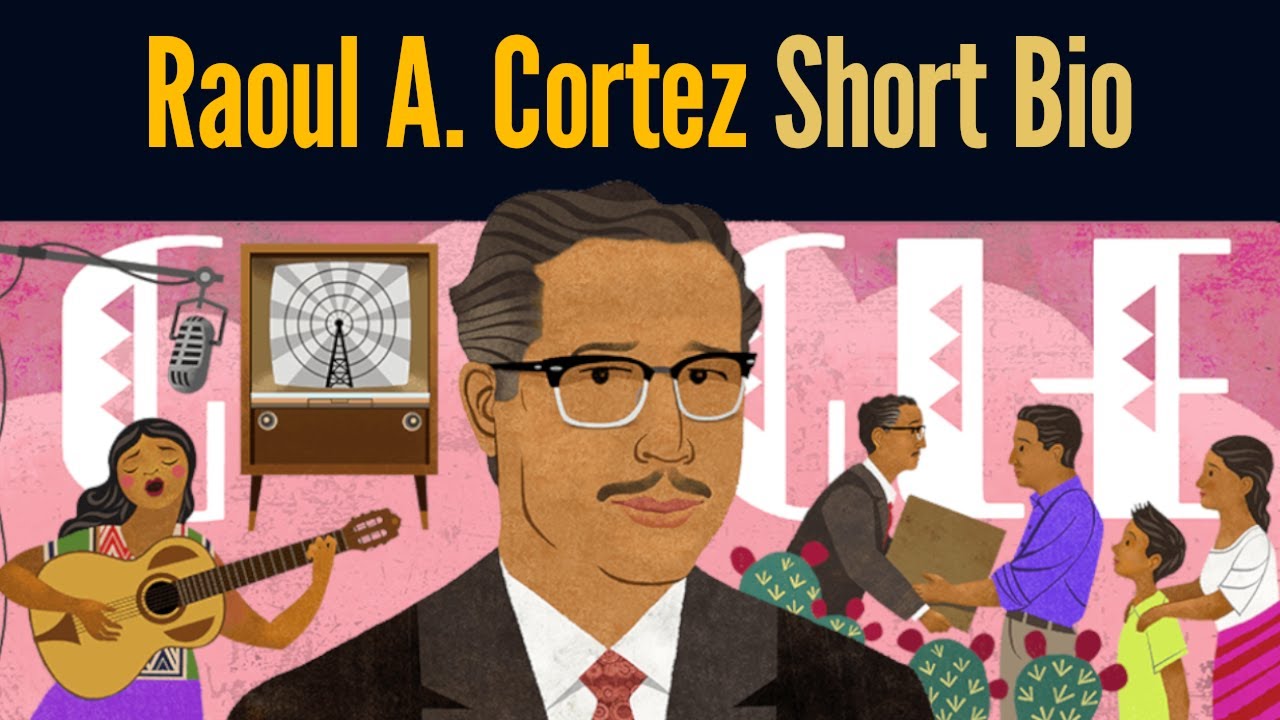- Early Life and Background
- Entry into Media
- Establishment of KCOR
- Challenges and Triumphs
- Expansion into Television
- Programming and Impact
- Advocacy and Community Involvement
- Influence on Civil Rights
- Leadership Roles
- Raoul A. Cortez Legacy and Recognition
- Awards and Honors
- Continuing Influence
- Modern Media Landscape
- Personal Life and Character
- Family and Values
- Conclusion
- FAQs
Early Life and Background
Raoul A. Cortez was born on October 17, 1905, in Jalapa, Veracruz, Mexico, to Juan Manuel Cortez and his wife. He was one of nine children. When he was young, he moved to the United States looking for new opportunities.
In America, Cortez worked hard. His experiences growing up in a new country and his strong cultural background shaped his view of the world. These experiences inspired him to support and advocate for the Hispanic community.
Read Lindsay Berra
Entry into Media
Cortez began his journey in the media during the 1930s. He worked as a reporter for La Prensa and as a sales representative for the Pearl Brewing Company. He noticed that Hispanic Americans were not well-represented and believed they needed a stronger voice.
In the 1930s and 1940s, Cortez owned and operated a theatrical agency, bringing top entertainers from Mexico and Latin America to the U.S. This experience helped him lay the groundwork for his future work in the media industry.
Establishment of KCOR
In 1940, Cortez began buying airtime on KMAC Radio and started producing Spanish variety shows. By 1944, he applied for a license to create the first full-time Spanish-language radio station in the U.S. Two years later, in 1946, KCOR-AM went live.
This was a major accomplishment because, back then, there were very few platforms for the Hispanic community. Cortez’s station offered a mix of music, news, and cultural programs. It played a key role in preserving Hispanic traditions and helping the community connect with American society.
See dr. victor chang

Challenges and Triumphs
Starting KCOR was tough for Cortez. He struggled with money issues and skepticism from advertisers who weren’t sure a Spanish-language station would work. However, with strong determination and support from the community, KCOR flourished. The station became a cherished part of San Antonio and opened doors for more Spanish-language media in the U.S.
Visit michael corleone blanco net worth
Expansion into Television
After KCOR’s success, Cortez turned to television. In 1955, he launched KCOR-TV, the first Spanish-language TV station in the U.S. and the first UHF channel in the country. This was a major milestone in media, expanding Hispanic programming and providing a visual platform for Hispanic culture and issues.
Programming and Impact
KCOR-TV aired different shows, like news, telenovelas, variety programs, and educational content. The station played an important role in highlighting social and political issues impacting the Hispanic community. It also helped build pride and representation by featuring Hispanic talent and stories.
Advocacy and Community Involvement
In addition to his media work, Raoul A. Cortez was a dedicated community leader. He was elected twice as National President of the League of United Latin American Citizens (LULAC). During his time in this role, he met with Mexico’s President Miguel Aleman and U.S. President Harry S. Truman to discuss the problems faced by Mexican illegal immigrants. He is recognized for helping improve relations between the two countries and their agreements on the “Bracero” program.
Influence on Civil Rights
Cortez’s work in media and advocacy was linked to the civil rights movement. He used his radio and TV stations to support and spread the messages of civil rights leaders. His efforts brought the Hispanic community together and drew attention to injustices, helping push for wider social change.
Leadership Roles
Cortez also took on leadership roles in several organizations. He was President of the Mexican Chamber of Commerce, now known as the Hispanic Chamber of Commerce in San Antonio. He also led the Charro Association, showing his deep commitment to promoting Hispanic culture and business.
Raoul A. Cortez Legacy and Recognition
Raoul A. Cortez left a strong mark on media and the Hispanic community. His pioneering work paved the way for future Hispanic media professionals and advocates. Today, his legacy is remembered through many awards and honors that recognize his contributions to media and community service.

Awards and Honors
Cortez received many awards during his career for his groundbreaking work and dedication to the Hispanic community. These honors show how much his efforts to promote inclusive media and support civil rights were valued.
Continuing Influence
Cortez’s work left a lasting mark on media. Since the time of KCOR, Spanish-language media has grown a lot. Today, many radio and TV stations across the country serve Hispanic audiences. Cortez’s vision and dedication highlighted the importance of representation and helped create opportunities for future growth.
Modern Media Landscape
Today, Hispanic media is a vibrant and important part of American culture. The success of networks like Univision and Telemundo goes back to the groundbreaking work of Raoul A. Cortez. His influence is seen in the way Hispanic media has kept growing and diversifying.
Personal Life and Character
Raoul A. Cortez was admired not only for his career success but also for his strong character and dedication to his family. He balanced his work with his love for his family, showing the importance of hard work, perseverance, and helping others.
Family and Values
Family was central to Cortez’s life. He was married to Genoveva Cortez and had three children: Raoul Jr., Rosamaria Toscano, and Irma Nicolas. He taught his children the importance of education, cultural pride, and serving the community. His personal values guided his work, driving his commitment to equality and representation.
| Marital Status | Married |
| Wife | Genoveva Cortez |
| Kids | 3 (Raoul, Irma, Rosamaria) |
| Siblings | N/A |

Conclusion
Raoul A. Cortez is an important figure in Hispanic media and advocacy history. His trailblazing work in radio and TV gave the Hispanic community a strong voice. Cortez didn’t just focus on entertainment and news; he also fought for civil rights and community strength. His legacy continues to inspire future generations to work for representation and equality.
FAQs
Who was Raoul A. Cortez?
Raoul A. Cortez was a pioneer in Hispanic media and a community advocate. He founded KCOR, the first Spanish-language radio and television station in the U.S., and was a leader in promoting Hispanic culture, civil rights, and community empowerment.
What is Raoul A. Cortez known for?
Cortez is best known for founding KCOR Radio and KCOR-TV, which were groundbreaking in providing Spanish-language programming to Hispanic audiences in the U.S. He is also recognized for his work in civil rights and community service, advocating for Hispanic representation in media and politics.
What impact did Raoul A. Cortez have on media?
Cortez’s work opened doors for Hispanic media in the U.S. He paved the way for the growth of Spanish-language networks like Univision and Telemundo and helped create opportunities for Hispanic voices and stories to be heard.
How did Raoul A. Cortez contribute to civil rights?
In addition to his media work, Cortez was active in civil rights, particularly in supporting Hispanic and immigrant communities. He used his platforms to raise awareness about social issues and worked closely with leaders in both the U.S. and Mexico to improve relations and support immigrant rights.
What was Cortez’s role in the Hispanic community?
Cortez was a strong advocate for the Hispanic community. He held leadership roles in several organizations, including the League of United Latin American Citizens (LULAC) and the Mexican Chamber of Commerce. His work emphasized education, cultural pride, and equal representation.
What was Raoul A. Cortez’s family life like?
Family was central to Cortez’s life. He married Genoveva Cortez and had three children: Raoul Jr., Rosamaria Toscano, and Irma Nicolas. He passed on values of education, cultural pride, and community service to his children, which influenced both his personal and professional life.
What is Raoul A. Cortez’s legacy?
The thriving Hispanic media industry and the ongoing fight for equality and representation reflect Cortez’s legacy. His work continues to inspire future generations to advocate for Hispanic voices in media and to push for civil rights and community empowerment.







